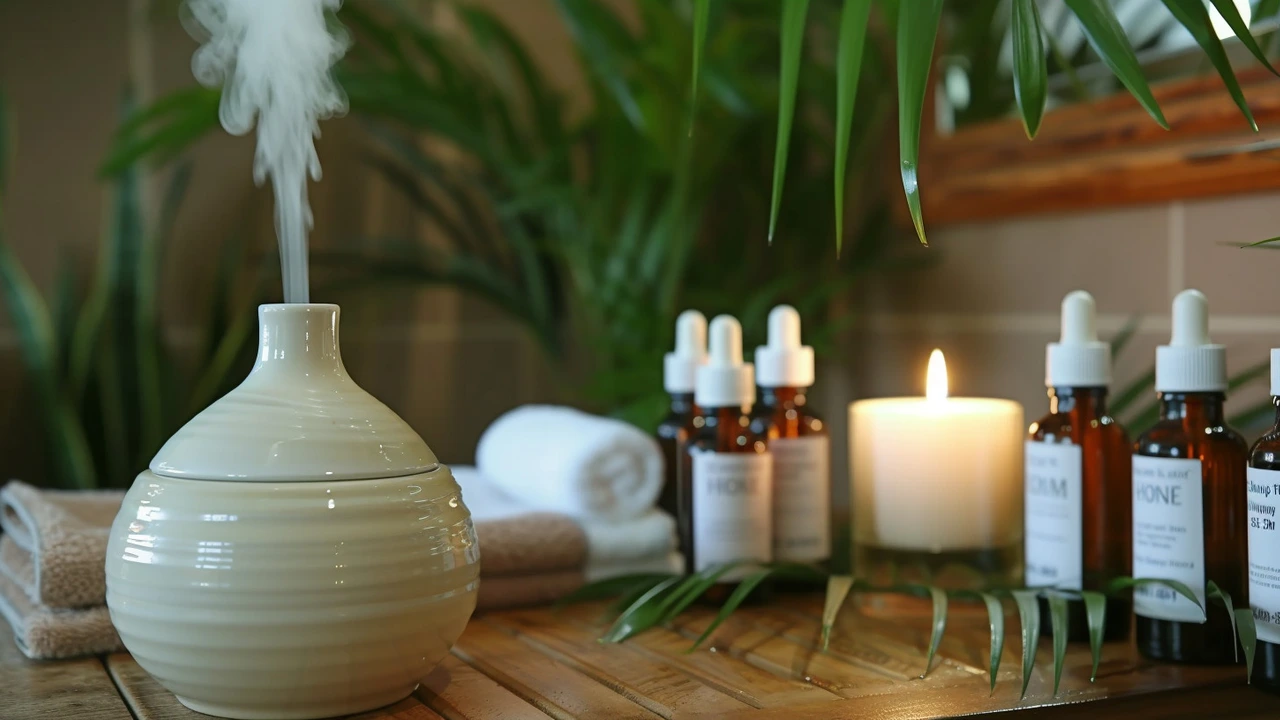
Understanding Aromatherapy: A Brief History
Aromatherapy, also known as essential oil therapy, is an age-old practice used for promoting physical and psychological well-being. This healing technique has been in use for over 6,000 years, with civilizations such as the Egyptians, Greeks, and Romans utilizing aromatic plant compounds for religious, medicinal, and cosmetic purposes. It was not until the 20th century that the term 'aromatherapy' was coined by French chemist René-Maurice Gattefossé after a personal experience of the healing properties of lavender oil. In this section, we will delve into the history of aromatherapy and how it has evolved over the years.
The Science Behind Aromatherapy
Many may wonder, 'How do these pleasing scents promote healing and well-being?' The answer lies in the complex chemistry of essential oils. When we inhale an aroma, the olfactory cells in our nose send signals directly to our brain, particularly the limbic system and amygdala, which are the centers of our emotions and memory. This interaction triggers various physiological responses, such as reduced stress, improved mood, and increased alertness. This section will break down the science behind aromatherapy and its effects on our body and mind.
Choosing Your Essential Oils
With a plethora of essential oils available in the market, choosing the right one can be overwhelming. Each oil carries its unique properties and benefits. Lavender oil is renowned for its calming effect, whereas peppermint oil is known to boost energy. It's important to consider your needs and preferences while selecting essential oils. This section will guide you through the process of choosing the right essential oils for your self-care routine.
Methods of Using Essential Oils
Essential oils can be used in several ways, from inhalation and topical application to baths and massages. The method of application plays a crucial role in determining the efficacy of the therapy. This section will explore different methods of using essential oils and provide insights into their pros and cons.
Creating a Self-Care Routine with Aromatherapy
Aromatherapy can be seamlessly incorporated into your self-care routine. Whether it's starting your day with a refreshing citrusy shower, relieving stress with a lavender-infused bath, or promoting sleep with a chamomile diffuser, the possibilities are endless. This section will provide tips on creating a self-care routine using aromatherapy.
Aromatherapy for Mental Well-being
Aromatherapy is not just about physical well-being; it plays a significant role in promoting mental health. Certain aromas can alleviate symptoms of stress, anxiety, and depression, thereby improving overall mood and emotional health. This section will discuss how aromatherapy can be used to enhance mental well-being.
Safety Precautions and Potential Risks
While aromatherapy offers numerous benefits, it's critical to use essential oils safely and responsibly. Some oils can cause allergic reactions, skin irritation, or interact negatively with certain medications. This section will elaborate on the safety precautions and potential risks associated with aromatherapy.
Benefits of Aromatherapy in Skincare
Beyond their therapeutic properties, essential oils are also popular in skincare. Oils like tea tree, lavender, and rosemary have antibacterial, anti-inflammatory, and antioxidant properties, making them excellent for treating various skin conditions. Learn more about the benefits of aromatherapy in skincare in this section.
Aromatherapy for Better Sleep
Having trouble sleeping? Aromatherapy might be the solution. Certain essential oils, such as lavender and chamomile, are known to promote better sleep by inducing a sense of calm and relaxation. In this section, we will discuss how to use aromatherapy for better sleep.
How to Choose an Aromatherapy Diffuser
A diffuser is a device that disperses essential oils into the air, creating a pleasant and therapeutic atmosphere. There are various types of diffusers, each with their unique features and benefits. This final section will guide you through the process of choosing the right aromatherapy diffuser for your needs.
